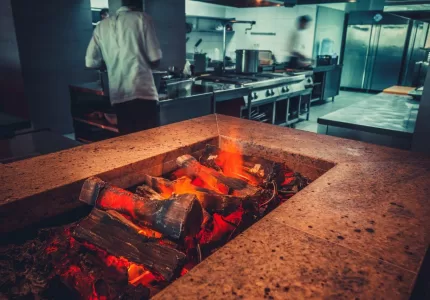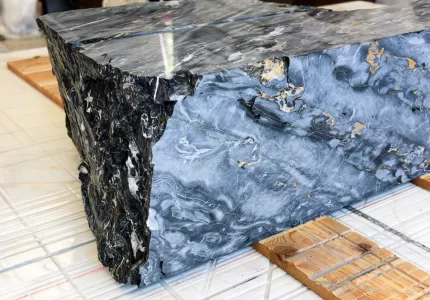So, you’re in the midst of a kitchen remodel and faced with a conundrum: granite or quartz countertops? Let’s dive into the key differences between these stone surfaces and unravel the mystery of which one suits your style—with a sprinkle of insight and a dash of clarity.
Natural vs. Engineered
Granite: Granite countertops are natural stones quarried from the Earth’s crust. Each slab is unique, showcasing the beauty of natural minerals and veining.
Quartz: Quartz countertops, on the other hand, are engineered stone surfaces made by mixing natural quartz crystals with resin and pigments. They offer consistency in color and pattern.
Durability Duel
Granite: Known for its exceptional durability, granite is resistant to scratches, heat, and stains. It’s like the Hulk of countertops, ready to take on anything.
Quartz: Quartz is also highly durable, thanks to its engineered nature. It’s scratch-resistant and less likely to chip or crack.
Maintenance Matters
Granite: Granite countertops require sealing to maintain their stain resistance. This step, while not overly complicated, needs periodic attention.
Quartz: Quartz countertops are virtually maintenance-free. They don’t require sealing and are easy to clean with just soap and water.
Aesthetic Appeal
Granite: Granite’s natural beauty shines through with unique patterns and color variations. If you love the idea of a one-of-a-kind countertop, granite might be your muse.
Quartz: Quartz offers consistent color and pattern options, making it easier to match your design vision. It’s like the reliable artist who always delivers.
Price Points
Granite: Granite countertops can have a wide price range, with exotic and rare varieties costing more. Overall, they tend to be slightly more budget-friendly than quartz.
Quartz: Quartz countertops often come with a higher price tag due to their engineered nature and consistent appearance.
Main Differences
Sourcing: Quartz constitutes an engineered blend of around 95% crushed natural quartz stone and 5% synthetic components like resins and pigments. Granite, conversely, is 100% authentic stone, extracted from the earth, then precisely cut and polished for various uses, such as countertops, flooring, mantles, and backsplashes.
Hardness: Quartz holds a slightly higher hardness rating than granite, measuring 7 on the Mohs scale, while granite scores a 6. Consequently, granite poses a slightly greater risk of cracks and chips compared to quartz, yet it remains far more durable than other surfaces like soapstone or marble.
Color and Texture Options: Quartz offers an extensive array of colors, easily customizable to match your preferred color scheme due to its manufactured nature. Customizing quartz textures and patterns is also effortless, allowing you to opt for a consistent pattern or a random, more natural appearance. Granite, too, boasts various colors and patterns, but these characteristics are firmly entrenched in its structure. The natural formation process of granite preserves distinct variations, ensuring each piece is truly unique. It’s essential to note that while you might discover the ideal granite your actual granite surface will match in color but unveil an entirely distinctive pattern.
The Comedy Break
Why did the countertop apply for a job? Because it wanted to prove it could “surface” to the occasion!
Alright, back to business!
The Final Verdict
So, which one should you choose? It ultimately comes down to your preferences and priorities. Granite offers natural beauty and durability but requires periodic sealing. Quartz provides consistency and low maintenance but comes at a slightly higher cost.
Both have their merits and can elevate your kitchen’s style. It’s a showdown of stone surfaces where the winner is determined by your unique needs and design aspirations. Whichever you choose, you’ll have a countertop that’s ready to serve as the centerpiece of your culinary adventures!





